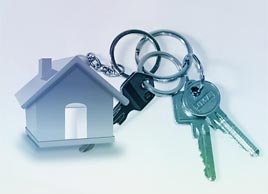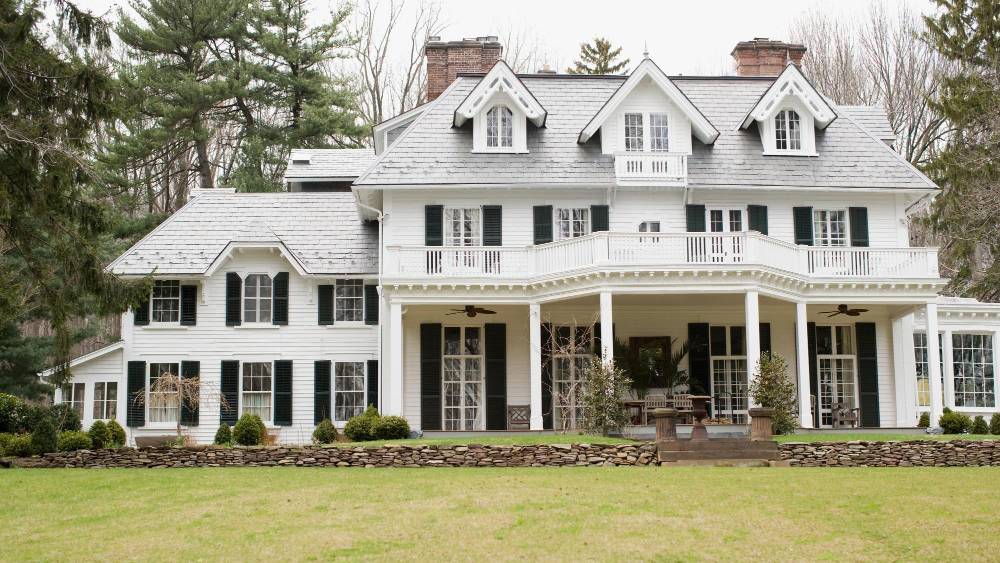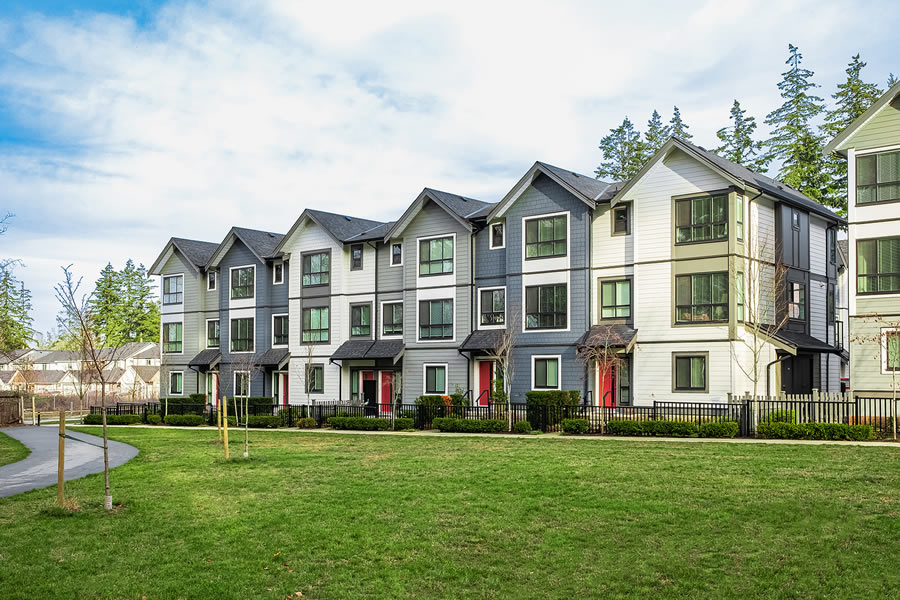Before I explain the problem I want you to understand something about me. I do know how to control keys. While serving in the United States Army I spent many years in nuclear weapons outfits. I even commanded two of them. Believe me, key control is vitally important in such organizations. I do know how to do it.

In those first several years I had a key control log in my property management business. Anyone that needed a key had to sign it out and sign it back in when finished with it. The key box would be locked after hours. Each key was tagged and coded so that if the key got lost, nobody would know the address of the property. Despite this attempt to control the keys, sometimes they invariably did not find their way back into the box. My agents and I were personally responsible for making sure key were returned but without the gravity of the security of nuclear weapons at risk, it was easy to get sloppy. Sometimes keys would somehow get separated from their tags and wind up sitting in the bottom of the box, unidentifiable.
I began to worry about liability. I could just envision a tenant calling and accusing us of stealing their property because we had a key. Stuff was missing, and there was no sign of forced entry. Therefore, my policy was that none of my agents would ever go into a leased property without the accompaniment of the tenant—that solves that problem. But it also made me begin to wonder why we even needed a key if that was my policy.
I could also envision the police coming to my office investigating a robbery and asking to see my key control log. That would of course be an inquiry on one of the properties for which the key had somehow gone missing. I pondered what my liability might be under such circumstances.

3 Options Realty is committed to providing Georgia's best property management services. But in the unlikely event that a landlord…
Read More
A dream tenant on move-in day can turn into an eviction case six months later. Missed rent, damage to your property,…
Read More
Are you struggling to maintain multiple rental properties? Have you recently purchased your first real estate investment, but are feeling overwhelmed…
Read More
Most property management companies are designed around the departmental organizational structure. 3 Options Realty is much different and there are…
Read MoreCall me a worrier. Maybe I’m overstating the real risk. But consider this. I also found when I managed keys that if tenants lost keys and could not get in at 10:00 at night, I might get a call for help because they figured I had a key. I could always turn them down—tell them to call a locksmith. The problem with that is, first of all I would feel like a jerk, and second of all, the tenant relationship would be potentially compromised. Today, if a tenant calls under such circumstances I can honestly tell them I have no key, sorry.
I’ve had other property managers tell me that I need to have keys in the event of an eviction or abandonment. Not so. When we do an eviction we always have a locksmith on-site to change out the locks anyway. If the tenants are not home, the locksmith can pick the lock. I treat abandonments like eviction. I’m not going to enter the house without a writ of possession in the case of an abandonment—way too much liability there. That’s a story for another blog.
I’ve had landlords insist, against my counsel, that they keep a key. When they do, I give them one, but I tell them that if they ever use the key they will be in default of our agreement. I further explain the risk they are assuming by simply having possession of the key.
In Georgia, tenants are entitled to the right of quiet enjoyment of the premises. This means the landlord cannot unreasonably disturb their privacy. Defining unreasonable might be difficult to do but I have no doubt in my mind that if the landlord visits the property without the tenant's home and without advance notice, that would be unreasonable.
Quiet enjoyment also speaks to the idea that the tenants possess the home. Along with possession comes a degree of responsibility. Excepting title, the tenants have many of the same rights as homeowners as long as they remain in possession in good standing. That’s why we cannot make them move, even if they don’t pay rent, without an order from the court.
I have had some people ask me how we can do maintenance on the property if we don’t have a key. That’s easy. How do homeowners do it when a repairman needs to visit their home? They figure out a way to do it. If they cannot be there they might ask a neighbor or friend to help out, or maybe they make some other arrangement with the repairman, like hiding a key. This is one of the responsibilities that goes along with possession.
Then some landlords worry that we cannot access the property in an emergency. To this I say, if it’s a bona fide emergency we will get in even if we have to break a window. We will get in. Also, the likelihood is low that the property manager would even be in the vicinity when an emergency occurs. First responders would not be waiting for a key. If the property manager did happen to be in the area, the key would probably be back in the key box in the office. Property managers do not carry around keys to all of their inventory. It’s just not practical.
I have two last arguments for not maintaining keys. Sometimes tenants are overly security conscious and they want to change the locks on their own. Many property managers have clauses in their leases that tell the tenants they can’t do this. All this does is either make the tenants feel uncomfortable the entire time they live there, or it causes them to do it without authorization from management. This sets up an unnecessary showdown between tenant and management. We want our tenants to be happy and feel safe in their homes. When they are they will be more likely to renew the lease and that’s huge for the landlord.
Here’s the final argument. Our policy allows us to save the landlord some money. When we move in a new tenant, we offer to change the locks for them and tell them they have to pay the first $100 for that service. Alternatively, if they decline this, which they usually do, we tell them they can change them themselves. That’s what usually happens, so the landlord does not get a bill for lock changing every time a tenant moves in or out.
Dan Wilhelm,
Executive Broker
3 Options Realty, LLC., CRMC®,
The Green Broker
678-397-1282
Dan@3OptionsRealty.com
http://www.3OptionsRealty.com
The author of this Blog is neither an attorney nor an accountant. Nothing is written should be construed as legal advice. Conclusions conveyed are outcomes based upon practical experience and should not be depended upon to be a common outcome of other similar circumstances. Consult with a professional before making tax or legal decisions.
Did you know that Gen Z and millennials make up a large part of the rental market and the highest percentage…
Read MoreTechnological advancements impact nearly every aspect of daily life, and property management is no exception. Whether you are a property owner…
Read MoreThe real estate market can be challenging, especially with its ever-changing and unpredictable rental landscape. Research shows that the challenges in…
Read MoreSuccessful property management is key to growth and a higher return on investment (ROI). With this in mind, selecting the right…
Read More